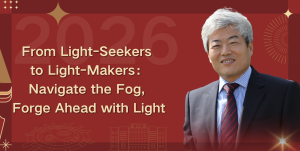Details
- Time: 4:00-5:30pm
- Date: Tuesday 7 December 2021
- Venue: HS436 and Zhumu (Please contact Yuexi.Liu@xjtlu.edu.cn for Zhumu details)
Abstract
Ishmael, the narrator of Moby-Dick, is well known for his quirky and erratic narrative voice. In one moment, he is theatrically lamenting over the killing of a young whale calf; in the next, he is making bawdy jokes about sperm whale mating habits. Over the years critics have found it useful to apply Mikhail Bakhtin’s theoretical concepts to make sense of this narrative instability, particularly those of dialogism and double-voicedness. In this talk I take a similar approach and examine salient instances of tonal and rhetorical disjuncture in Ishmael’s narrative in light of their dialogical implications. However, Ishmael’s tonal anomalies are varied and produce a range of literary effects. I argue that at least one of these is to echo the discrepant and ambivalent narrative tone that is (pace Bakhtin himself) to be found in Homer’s Iliad. I conclude that one potent effect of this is to illustrate the seductive resilience of heroic-epic attitudes towards martial glory and honor, which endure in the cultural consciousness, albeit in a state of dialogic tension with voices that value principles of peace, brotherhood and compassion.
Speaker

Dr Alan McCluskey is an Assistant Professor in English Literature. His first book, Materiality and the Modern Cosmopolitan Novel (Palgrave, 2015), explores some of the ways that cosmopolitan values and ideas manifest themselves in works of literature derived from various contexts. His most recent publication, forthcoming in Leviathan (Johns Hopkins Press), examines tone and double-voicedness in Melville’s Moby-Dick.







